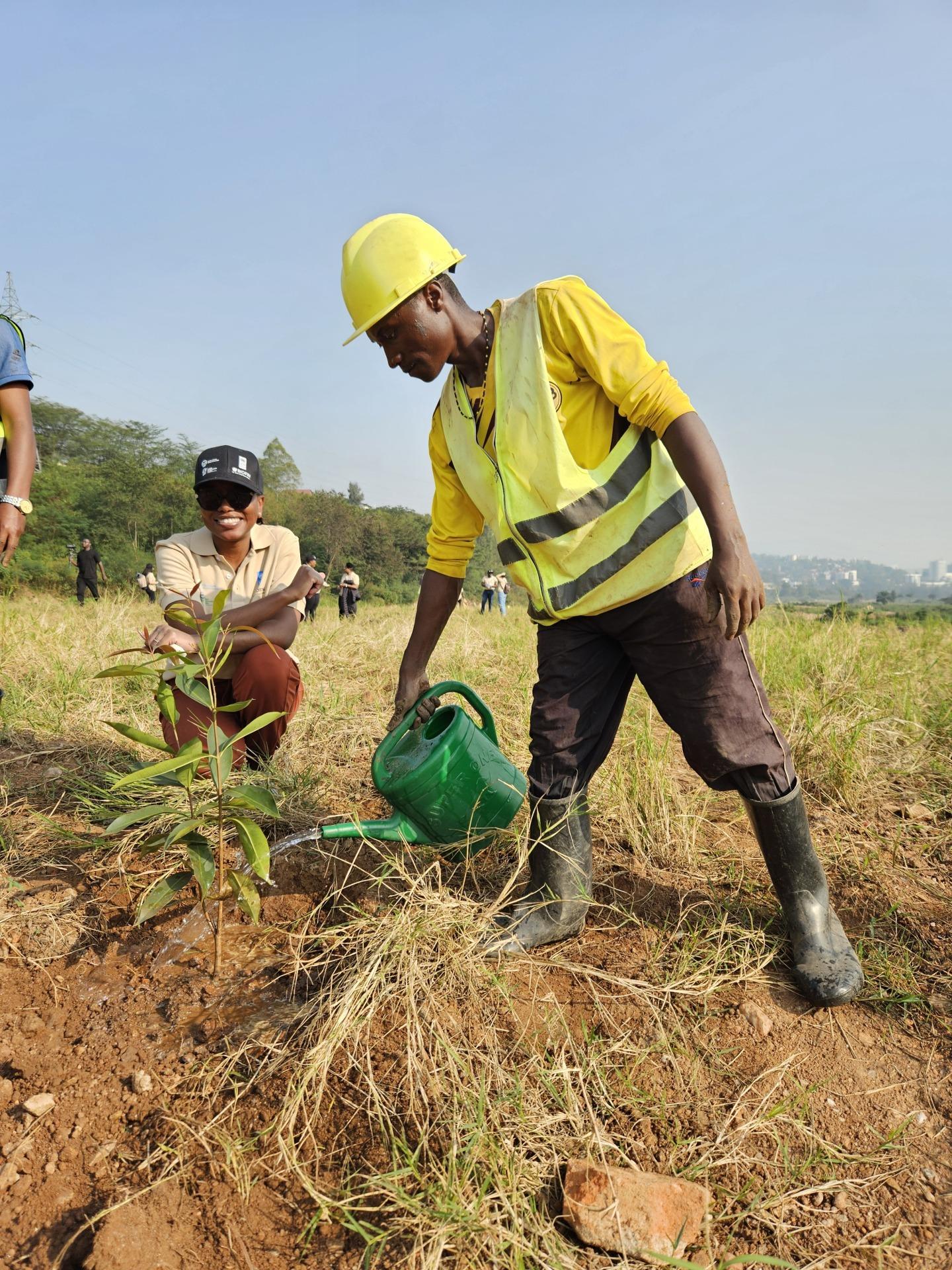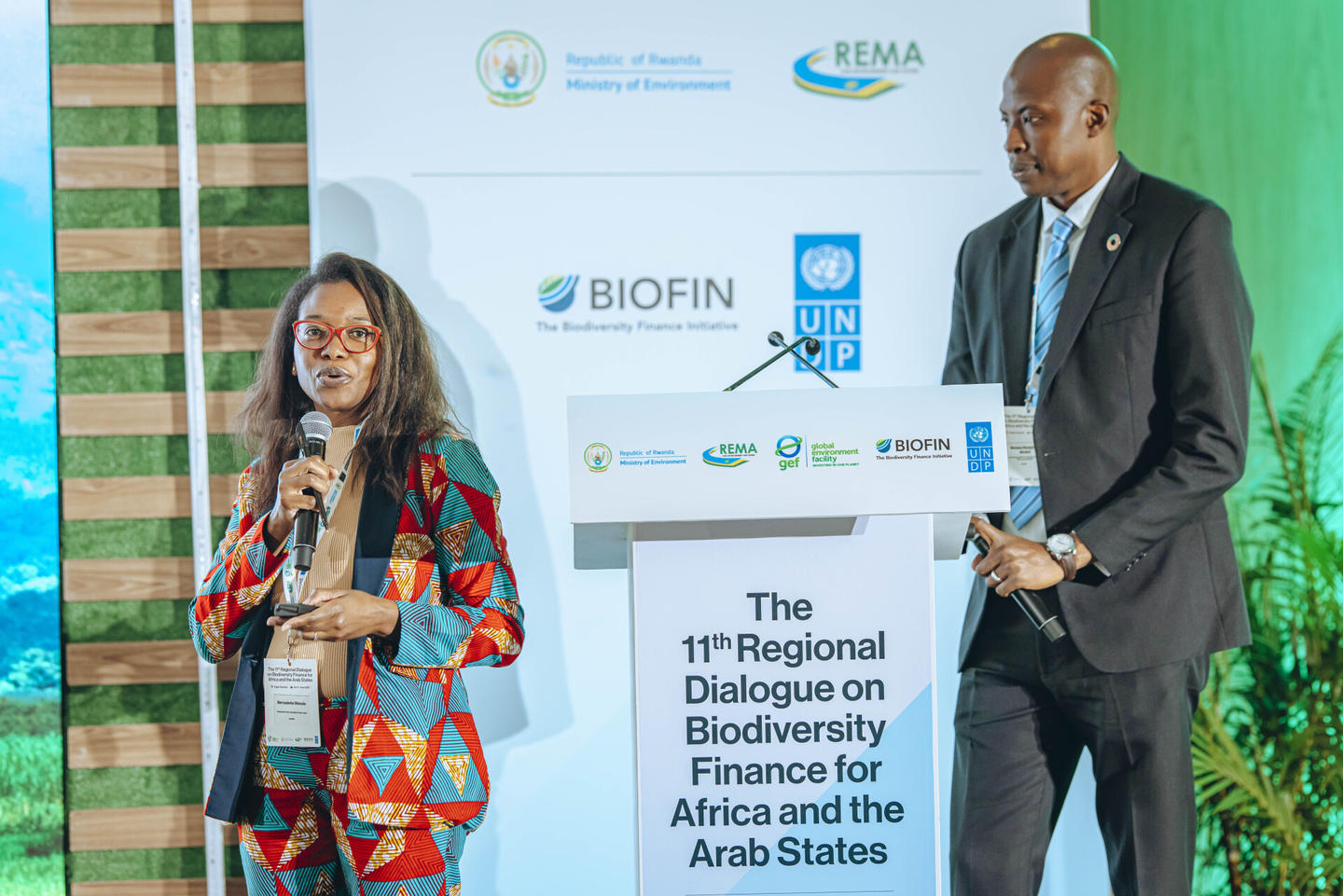The Time to Act Is Now: Mobilizing Finance for People and Nature
To build a future where both people and nature thrive, we must urgently align our financial systems, public policies, and community actions with bold biodiversity goals. The time to act is not tomorrow, it is now.
Namibia has recently joined the global Biodiversity Finance Initiative (BIOFIN) movement, a flagship initiative of the United Nations Development Programme (UNDP), taking its first steps by participating in the regional Biodiversity Finance Dialogue for Africa and the Arab States, held in the vibrant city of Kigali, Rwanda.
BIOFIN is a global initiative of the UNDP, launched in 2012 and now active in more than 130 countries. Through UNDP’s technical and policy leadership, BIOFIN helps tackles the challenge of financing biodiversity conservation by providing technical support to develop and implement effective biodiversity finance strategies. BIOFIN helps countries assess financial needs, identify inefficiencies in spending, and mobilize additional resources.
Although new to BIOFIN, Namibia is no stranger to conservation leadership. Since the early 1990s, our Community-Based Natural Resource Management (CBNRM) programme has gained international recognition as a model for sustainable development. Today, Namibia is considered a global conservation success story. Since gaining independence in 1990, nearly half of Namibia’s land has come under some form of conservation management, ranging from state-protected areas to communal conservancies, community forests, and private reserves. At the heart of this achievement are local and indigenous communities, whose stewardship of natural resources has made a lasting impact. Yet, there is still more to be done.

Bernadette Shivute engaging with a staff working on the Wetland Rehabilitation Projects during the tree planting ceremony at the 11th Regional Dialogue on Biodiversity Finance in Rwanda.
Empowering Communities Through Finance
While our conservation efforts are strong, rural communities, often the closest custodians of nature, still face significant challenges. Inequality remains a key driver of biodiversity loss. Many communities depend on unsustainable, extractive livelihoods simply because there are no viable alternatives.
To address this, we must ensure that financial resources and economic benefits reach the grassroots. By redistributing wealth and investing directly in nature stewards, we can empower communities to adopt sustainable practices that protect biodiversity while improving livelihoods.
A Crisis and an Opportunity
Nature is our life support system. But it is under immense and growing pressure. Human activity, especially in the last century, has driven biodiversity to the brink. If we fail to reverse this trend, we risk compounding global crises from climate change and pandemics to food insecurity.
Events like the Africa Dialogue on Biodiversity Finance are vital. They offer a platform for countries to exchange ideas, share strategies, and collaborate on turning natural capital into economic value. For Namibia, it was a powerful opportunity to reflect on our journey, share our successes, and learn from others in the region.

BIOFIN Namibia team presenting the Communications strategy at the 11th Regional Dialogue on Biodiversity Finance in Rwanda.
As a way forward, UNDP through BIOFIN Namibia has established a Green Finance Technical Working Group which will spearhead efforts aimed towards mainstreaming green finance in the Namibian financial landscape. To understand nature related risks, faced by the sector BIOFIN Namibia has commissioned a study on nature-related risk. The results of this study will assess the interactions between nature, the macroeconomy and the financial system in a way that is intended to be actionable. The private sector can play a central role in halting biodiversity loss and financing biodiversity conservation through sustainable business practices, when the impacts and vulnerabilities of private businesses to biodiversity are considered.
Furthermore, UNDP through BIOFIN Namibia has commenced the process of establishing an Endowment Fund for Biodiversity in the country. The Endowment Fund seeks to create a stable and reliable source of funding, addressing the critical need for sustainable conservation financing. This approach mirrors other successful conservation financing projects in Namibia, where initial smaller investments were used to build credibility, attract further funding, and ultimately grow the fund to a sustainable level. The proceeds or income generated from the endowment will be utilized to finance projects through the provision of grants and loans to recipients.
Read more about Nature-Finance Innovations Take Centre Stage at Africa and Arab States Conference in Kigali: https://www.biofin.org/news-and-media/nature-finance-innovations-take-centre-stage-africa-and-arab-states-conference